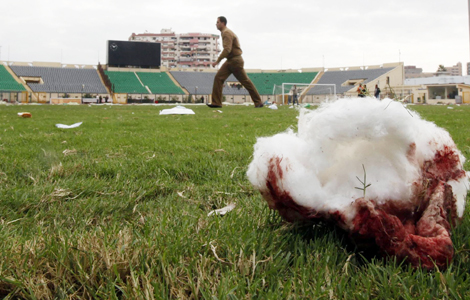Boeing calls for Sino-US efforts on ETS
Updated: 2012-02-11 07:56
By Wang Wen (China Daily)
|
|||||||||||
BEIJING - The United States should form a united front with China to combat European Union carbon-emission taxes, a senior executive with Boeing Co said on Friday.
"Without a doubt, the united front between China and the US on what action to take would be quite powerful," said Marc Allen, president of Boeing China, talking about the EU Emission Trading Scheme.
Under the scheme, which took effect on Jan 1, airlines must buy additional allowances for emissions beyond a set level or face fines. However, the charges have been opposed by a number of countries, including China and the US.
On Monday, the Civil Aviation Administration of China issued a ban on all domestic airlines complying with the EU scheme to impose charges on carbon emissions from flights to and from Europe.
"The Chinese government officials with whom I spoke are confident that the US will follow them and take similar action," said Allen.
He said the US government has already shown its opposition to the European scheme, although the company does not know what action the US government will take.
The US Congress is expected to pass a bill to oppose the scheme covering US carriers, Reuters reported on Feb 1.
Meanwhile, the Chinese authorities also need to get support from the US, which should be the main force to oppose the taxes, said analysts.
After all, US airlines operate more routes in Europe and they will be charged more than Chinese carriers, said Li Lei, an aviation analyst at CITIC Securities Co Ltd.
As an aircraft manufacturer, Boeing believes that the problem of carbon emissions should be resolved globally through advanced technology rather than imposing taxes.
"What the ETS is doing is just the opposite of the right way," Allen said.
He said Boeing is working on developing more energy-efficient aircraft, such as the 787 Dreamliner, which reduces fuel consumption by 20 percent more than any other aircraft of comparable size.
But the B787, the delivery of which was delayed by three years, encountered a problem recently after it was revealed that some spacers - called shims - on the tail section, had been installed incorrectly.
There's no immediate safety issue and the problem will not slow production, said Jim McNerney, chief executive officer and chairman of Boeing, when he responded to concerns on his blog.
"The delivery of the 787 to Chinese carriers will not be affected by the problem either," said Allen.
China Southern Airlines Co will be the first Chinese carrier to take receipt of the 787 and the first delivery will happen in the second half of the year, Allen said.
Related Stories
China opposes EU's carbon scheme 2012-02-06 21:03
Emissions scheme due for rough landing 2011-08-02 07:49
EU emission tax may trigger aviation trade war 2012-01-06 13:53
China urges EU to drop aviation emission plan 2011-11-08 17:10
- US to continue probes into wind tower imports
- Boeing calls for Sino-US efforts on ETS
- Cross-province effort to build economic hub
- Drop in lending deepens concerns
- China to expand government procurement
- Guangdong tough on economic crime
- Activists hope to thwart IPO bid
- Yuan hits new high ahead of Xi's visit








